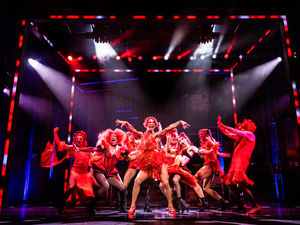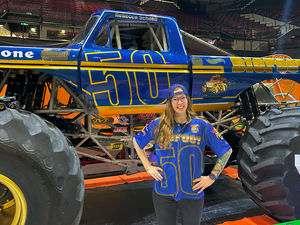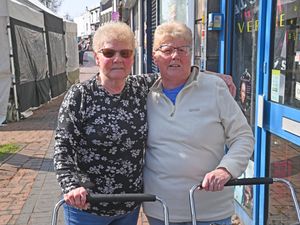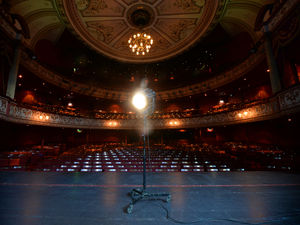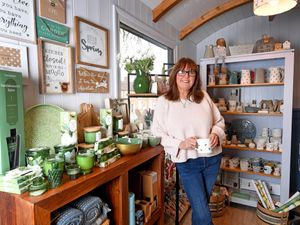How music that inspired new BBC drama This Town was a unifying force
Steven Knight’s This Town isn’t simply an opportunity for great entertainment, though with a remarkable cast and stunning soundtrack, it will surely provide that in spades.
Watch more of our videos on ShotsTV.com
and on Freeview 262 or Freely 565
It’s also an opportunity to remember our social history, to look back at a time when races came together, to remember the importance of music and fashion as a unifying force.
Two-tone was a music of this place. While Coventry was at the centre of that particular whirlwind, across the West Midlands there was a sense of purpose as a multi-cultural community captured the zeitgeist.
With its roots in Jamaican ska, rocksteady and reggae music, and with those genres being fused with white working class punk, and the aspirational sounds of new wave music, Two Tone was for all comers.
It was colour blind and unifying, it was inclusive and diverse, it was a time when black and white could unite behind sounds and fashions that were of and for the people.
Two-tone was the response to Thatcherism, to some extent. Unemployment was high, and This Town truly had become a ghost town.
Prospects were low as the UK found itself sucked into a downwards spiral. Two tone transcended the racial tensions that led to riots on the streets of Britain, as Afro-Caribbean communities pushed back against reductive thinking that enabled signs declaiming No Blacks, No Irish, No Dogs.
It presented a united front, a rejection of the hostilities of old, a coming together across multi-ethnic communities among those who rejected division and were inspired by one another, rather than afraid.
It was a rejection of ignorance and a fear of the unknown. And it was a time when the young people of Britain found their voice and said no to segregation, prejudice, and hate.
There were key bands and key figures. There are always are. Just like the swinging sixties had The Beatles and the Stones, and just as Britpop latterly had Blur, Oasis, and Pulp, so Two-tone had such icons as The Specials, The Selector, and The Beat.
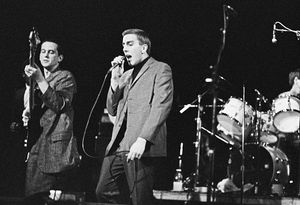
It wasn’t just geography, great tunes, and a rejection of bigoted ideas of segregation that united them. It was also their clothes. Two-tone bands looked great, as they dressed in suits and hats, wore black and white, and looked like the sort of street-smart gang that everyone might want to join.
Wrap-around shades, blue-beat brim hats, slim-jim ties, and thick-soled loafers were on parade in the high streets, which were filled with rude boys who both walked the walk and talked the talk.
The two former bands were formed in Coventry, the latter hailed from Birmingham – the same city that gave us UB40, the world’s most successful reggae band, and another group that rejected division according to race.
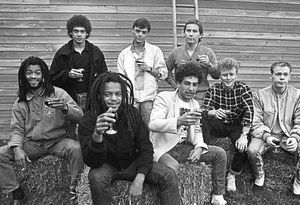
The Specials were – and are – unique. They were important. They out-lived the movement that spawned them and toured until the death of frontman Terry Hall, in December 2022
Too Much Too Young was an anthem for troubled times, while the recession-themed single Ghost Town was a call to arms, as well as a number one hit.
The Specials spoke for a generation, articulating the sadness and emptiness that was born from hopelessness and despair. Terry Hall and Neville Staple led a band in which keyboardist Jerry Dammers was initially pre-eminent, and The Specials enjoyed seven consecutive top 10 singles between 1979 and 1981, before Hall and Staple left to form Fun Boy Three, with fellow Special, the guitarist Lynval Golding.
It took 12 years for the band to reform, by which time Dammers had moved on, though the body of work created during those dizzy, early years lived on.
The Specials’ self-titled debut album was a work of near-genius.
Produced by Elvis Costello and borrowing from Bob Marley’s Catch a Fire, it painted an incendiary picture of the violent inner cities of 1970s Britain as it mixed covers of Jamaican ska classics like Monkey Man, Too Hot, and A Message To You Rudy, with original songs like Nite Klub, Stupid Marriage, and Too Much Too Young.
The Selecter were another band who made a long-lasting impact and were among the most successful of the Two-tone era.
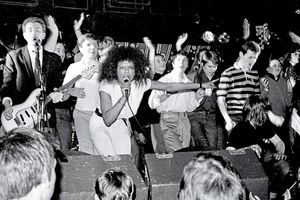
The band’s line-up was fluid and having released a double-A-sided single with The Special AKA, they enjoyed hits with On My Radio, Three Minute Hero, and Missing Words, which all hit the top 25.
Birmingham’s multi-cultural The Beat also mixed genres as they created a distinctive blend of ska and pop, soul and reggae, punk and rock.
During a period of high unemployment, as West Midlands factories closed down, they articulated the feelings of many in an era of social upheaval.
Enjoying a slew of hits – Mirror In The Bathroom, Save It For Later, I Confess, Too Nice To Talk To, Can’t Get Used To Losing You, Hands Off She’s Mine, and All Out To Get You – the band comprised Dave Wakeling with Ranking Roger, Andy Cox, David Steel, Everett Morton, and Lionel Augustus Martin.
Ranking Roger was a critical influence, adding a Jamaican flavour to the band’s sound with his toasting style, while Lionel Martin’s Jamaican sax sound was also key.
The impact on British culture was profound. Two-tone not only paved the way for subsequent musical genres, such as the 1980s’ 2 Tone-influenced ska punk and the 1990s’ ska revival, it also created a societal legacy.
It led to enduring tolerance, a greater understanding of multiculturalism, and showed that music had the power to bridge divides in British society.
Two-tone became an essential chapter in the rich tapestry of British cultural history, reminding us of the enduring power of music to shape and unite communities.

